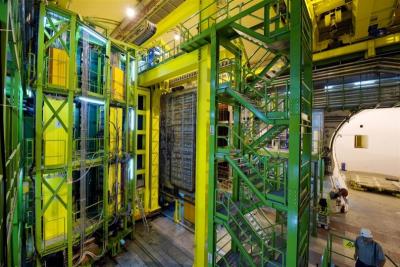Topic: WEB - on July 5, 2016 at 9:53:00 AM CEST
What media companies don’t want you to know about ad blockers
New York Times CEO Mark Thompson caused a minor stir a couple weeks ago when he gave a speech at an advertising conference declaring that “No one who refuses to contribute to the creation of high quality journalism has the right to consume it.” He went on to say that while the Times is “not there yet,” the company may soon prevent users with ad blockers from accessing its site. But newspaper executives like Thompson often focus exclusively on the drawbacks of ad blockers, leaving a big part of the story untold. Thompson did not say one word in his keynote address about the significant security benefits of ad blockers, which is ironic, because his paper was one of several news organizations that served its users.
... Link (0 comments) ... Comment
Topic: EU - on July 5, 2016 at 9:52:00 AM CEST
Last chance to have your say on new EU spam and cookie law
There are just 24 hours left to respond to a public consultation on the EU’s so-called Cookie Law. The European Commission plans an overhaul of the more correctly named ePrivacy Directive before the end of the year to bring it into line with the new General Data Protection Regulation. The use of cookies in the UK is governed by the Privacy and Electronic Communications Regulations (PECR), based on the ePrivacy Directive, which require organisations to provide clear information about how cookies are used on their website and allow people to opt in or opt out from having non-essential cookies placed on their device.
... Link (0 comments) ... Comment
Topic: EU - on July 5, 2016 at 9:50:00 AM CEST
Europol’s online censorship unit is haphazard and unaccountable says NGO
Europol’s Internet Referral Unit (IRU) celebrated its first birthday at the weekend, but civil liberties organisations are worried that it goes too far in its efforts to keep the Web free from extremist propaganda. The IRU has been up and running since July 2015 as part of the European Counter Terrorism Centre (ECTC) in the Hague. The unit is charged with monitoring the Internet for extremist propaganda and referring “relevant online content towards concerned Internet service providers” in particular social media. Much was made of how the IRU could "contact social network service provider Facebook directly to ask it to delete a Web page run by ISIS or request details of other pages that might be run by the same user."
... Link (0 comments) ... Comment
Topic: Appelbaum - on July 5, 2016 at 9:49:00 AM CEST
Linux Australia backflips on Appelbaum stance
Linux Australia has done a backflip on its stance over privacy advocate Jacob Appelbaum who was recently thrown out of several software groupings following numerous accusations of sexual harassment. On Friday, LA president Hugh Blemings issued a statement on the group's main mailing list, saying that Appelbaum would not be invited to the next Australian national Linux conference (LCA 2017) or to the next event on LA's calendar, its annual Python conference which is known as PyCon Australia.
... Link (0 comments) ... Comment
Topic: POLITIK - on July 4, 2016 at 12:30:00 PM CEST
He's a cunt

... Link (0 comments) ... Comment
Topic: WEB - on July 4, 2016 at 11:04:00 AM CEST
Nazi Detector
Nazi Detector: A Google Chrome extension that identifies white supremacists online, based on the infamous (((Coincidence Detector)))
... Link (0 comments) ... Comment
Topic: DRUGS - on July 4, 2016 at 11:03:00 AM CEST
Jamaica to install weed vending machines at airports
Instead of landing and having to ask strangers where “the plug” is, you’ll find it conveniently plugged into the wall nearby. The Jamaican government is looking over a proposal to install cannabis kiosks in Jamaican airports. Only one year ago, the Jamaican House of Representatives passed a law that made possession of 2 ounces of marijuana legal. Now the proposal being looked over by the Cannabis Licensing Authority would allow a tourist to obtain 2 ounces from a kiosk before they even check into their hotel.
... Link (0 comments) ... Comment
Topic: DRUGS - on July 4, 2016 at 11:01:00 AM CEST
These maps show how dangerous illegal drugs flow around the globe
The UN Office on Drugs and Crime released its annual World Drug Report this month, detailing the prevailing trends in global drug cultivation, trafficking, and use. Relying on surveys and other data, the UN estimated that one in 20 adults — a quarter-billion people ages 15 to 64 around the world — used at least one drug in 2014.
... Link (0 comments) ... Comment
Topic: PHOTO - on July 4, 2016 at 11:00:00 AM CEST
Fujifilm’s instant photo printer is finally out of its awkward phase
In a world full of smartphone photography and digital cameras, shooting pictures on film has become a niche endeavor. Instant film, popularized by Polaroid in the mid-to-late 20th century, is an even deeper niche. But Fujifilm’s newest product, the Instax Share SP-2 printer, is a smart little bridge between the digital and analog worlds.
... Link (0 comments) ... Comment
Topic: SCIENCE - on July 4, 2016 at 10:58:00 AM CEST
Listen to the LHC’s Weird, Whale-Like Sounds
From their humble beginnings in a canister of hydrogen gas, stripped of their companion electrons and directed through a series of smaller accelerators, batches of protons (about 30 centimeters long and a few hundred micrometers thick) pick up energy in stages until they are ready to be injected into the Collider ring. It is impossible, though, to create a constant electric field strong enough, over enough of a distance, to get these charged particles anywhere near the speed required for the Collider’s experiments. Instead, the Collider uses so-called radio frequency cavities, eight of them for each beam going in opposite directions, spaced regularly around the ring. Inside them, an electric field oscillates back and forth, resonating at very high (radio) frequencies.
... Link (0 comments) ... Comment
Topic: SCIENCE - on July 2, 2016 at 5:03:00 PM CEST
LHCb unveils new particles
On 28 June, the LHCb collaboration reported the observation of three new "exotic" particles and the confirmation of the existence of a fourth one in data from the Large Hadron Collider (LHC). These particles seem to be formed by four quarks (the fundamental constituent of the matter inside all the atoms of the universe): two quarks and two antiquarks (that is, a tetraquark). Due to their non-standard quark content, the newly observed particles have been included in the broad category of so-called exotic particles, although their exact theoretical interpretation is still under study.

... Link (0 comments) ... Comment
Topic: SECURITY - on July 2, 2016 at 5:02:00 PM CEST
INTERVIEW | CRYPTOME: 1996/2016
"Cryptome welcomes documents for publication that are prohibited by governments worldwide, in particular material on freedom of expression, privacy, cryptology, dual-use technologies, national security, intelligence, and secret governance -- open, secret and classified documents -- but not limited to those. Documents are removed from this site only by order served directly by a US court having jurisdiction. No court order has ever been served; any order served will be published here -- or elsewhere if gagged by order. Bluffs will be published if comical but otherwise ignored. "
... Link (0 comments) ... Comment










